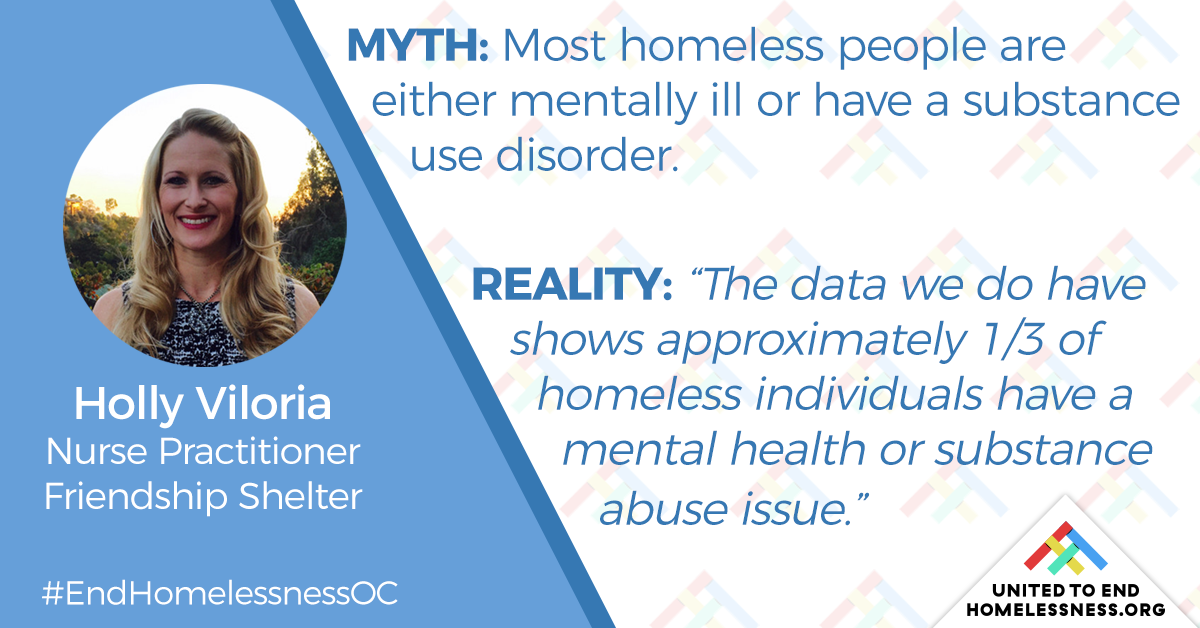Myth #1: Most Homeless People Are Either Mentally Ill or Have a Substance Use Disorder
Author: Brateil Aghasi, Executive Director, WISEPlace
There are a lot of assumptions surrounding the topic of “why people become homeless”, especially here in Orange County. While discussing this topic, I often hear people cite mental illness or substance use disorders as the primary cause of homelessness. However, the data from studies looking into these topics and the stories that I hear from clients that I work with do not support this narrative.
Let’s start by looking at how many people who are currently experiencing homelessness actually have a mental illness or a substance use disorder. Based off of the 2019 Point in Time Count that was conducted this past January, only 33 percent of the people who were unsheltered reported substance use disorders, and only 26 percent reported mental health issues.

When we look at studies examining why people become homeless the data once again points to different causes than you might’ve read on NextDoor or Facebook.
According to a demographic survey that was done as part of the UCI Cost Study, there were three top reasons why people became homeless. The top two causes were finding a job that paid a sustainable wage, and finding housing that’s affordable. Over 75 percent cited these issues as what caused them to fall into homelessness. The third reported cause of people’s homelessness was family issues, which encompassed events like death of a family member, divorce, or abuse. The findings from this study correlate with similar studies across the nation in finding that these are the top causes of people’s homelessness. The survey also looked at the top causes of homelessness for just women. It found that the first reported cause was either job loss or lack of affordable housing, and the second cause was domestic violence. When I look at that percentage, I see all the women who had to leave a life-threatening situation and are now having to sleep on our streets. Many of the clients we serve at WISEPlace have lived this percentage- over half of the clients we work with escaped domestic violence, which caused them to experience homelessness. While mental illness and substance use disorders are a component, they are not the number one reason why people become homeless and these conditions are certainly not present in the majority of the our homeless community.
These are difficult realities to acknowledge- it brings the issue of homelessness closer to our doorstep and forces us to realize that these are situations our family, friends, or even ourselves could end up in. It’s disheartening to think of the women who survived domestic violence, who are now fighting to survive on our streets. These are tough truths to digest, but once we do we’re able to see just how critical housing is in solving people’s homelessness. Homelessness ends when someone is in a home.